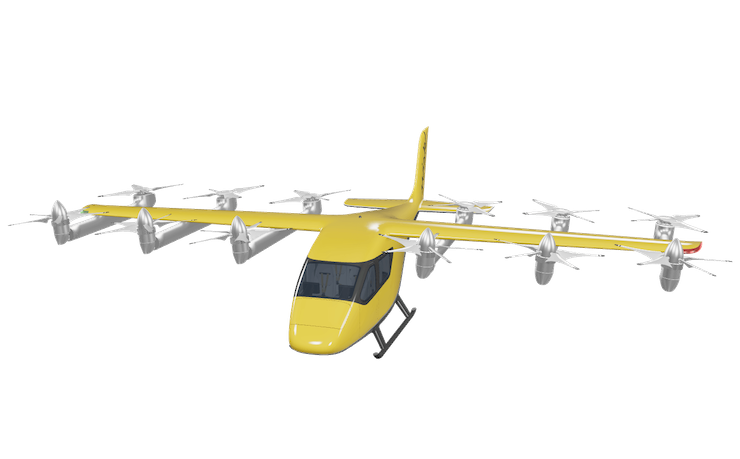
Mountain View, CA based Wisk, a leading designer of eVTOL air taxis, has just inked a deal with the City of Sugar Land near Houston, TX to begin providing drone passenger service at a small regional airport by the end of 2030.
Under their agreement, Wisk and the city will work jointly to identify a site at the Sugar Land Regional Airport to establish a vertiport for Wisk’s autonomous air taxi operations. The airport, located about 24 miles southwest of downtown Houston, will serve as the hub for a much wider eVTOL network planned for the greater Houston region.
Wisk and the city also have tentative plans to establish vertiports at four other locations on the outskirts of Houston, including Woodlands and Galleria – the latter, a popular shopping and tourist mecca. Passengers traveling to and from the Sugar Land airport will be able to board and disembark eVTOLs at these locations.
“We are looking at other existing aviation infrastructure in the Houston region to connect to Sugar Land and across the Houston airport system,” Emilien Marchand, Wisk’s director of ecosystem partnerships, said in an interview. “Sugar Land is really the first domino, if you will.”
Marchand said Wisk and Sugar Land were able to reach agreement on their air taxi plan with little delay. The City has adopted a forward-looking vision for deploying electric-powered vehicles to relieve traffic congestion, reduce air pollution and enhance sustainability throughout the greater Houston area. Once Wisk submitted its proposal, the City quickly agreed.
Wisk eVTOLs likely won’t be the first in the U.S. to fly commercially. Two other Silicon Valley-based companies, Joby and Archer, have plans to be airborne at major international airports by 2026. But both companies plan to begin operations with piloted versions of their eVTOLs, to reduce the perceived safety risk. Wisk could well be the first passenger drone company to offer autonomous or pilot-less flights.
“Our strategy is to go straight to autonomy so that we can be the first company to scale operations,” Marchand said.
Wisk’s air taxi flights won’t go completely unmonitored. The company plans to establish a “Fleet Operations Center” to monitor the flight operations of all of its eVTOL aircraft. With active digital controls, ground personnel can implement emergency procedures should flights go awry, officials say.
Still, are consumers prepared to fly on an aircraft knowing no pilot is aboard?
“I’ll tell you, we’ve received a ton of excitement about it, so there’s plenty of people that are asking when they can get on one of these things. And so, I do think the interest will be there,” City Council manager Mike Goodrum says.
It helps that Wisk is no newbie. The company has been developing self-flying eVTOL air taxis for more than a decade and has conducted nearly 2,000 test flights through five generations of aircraft. Its sixth-generation prototype is being developed in close cooperation with the FAA, which is prepared to certify the taxi’s airworthiness once it passes rigorous performance and safety protocols.
Wisk’s latest prototype will be able to comfortably carry four passengers, plus their baggage. The cost of each flight will be based on the Uber Black model, which clocks $3 per passenger mile.
The company plans to have its first eVTOLs ready for experimental flights by the end of 2028, and hopes to move forward with full-scale commercial deployment by the end of 2030.
|